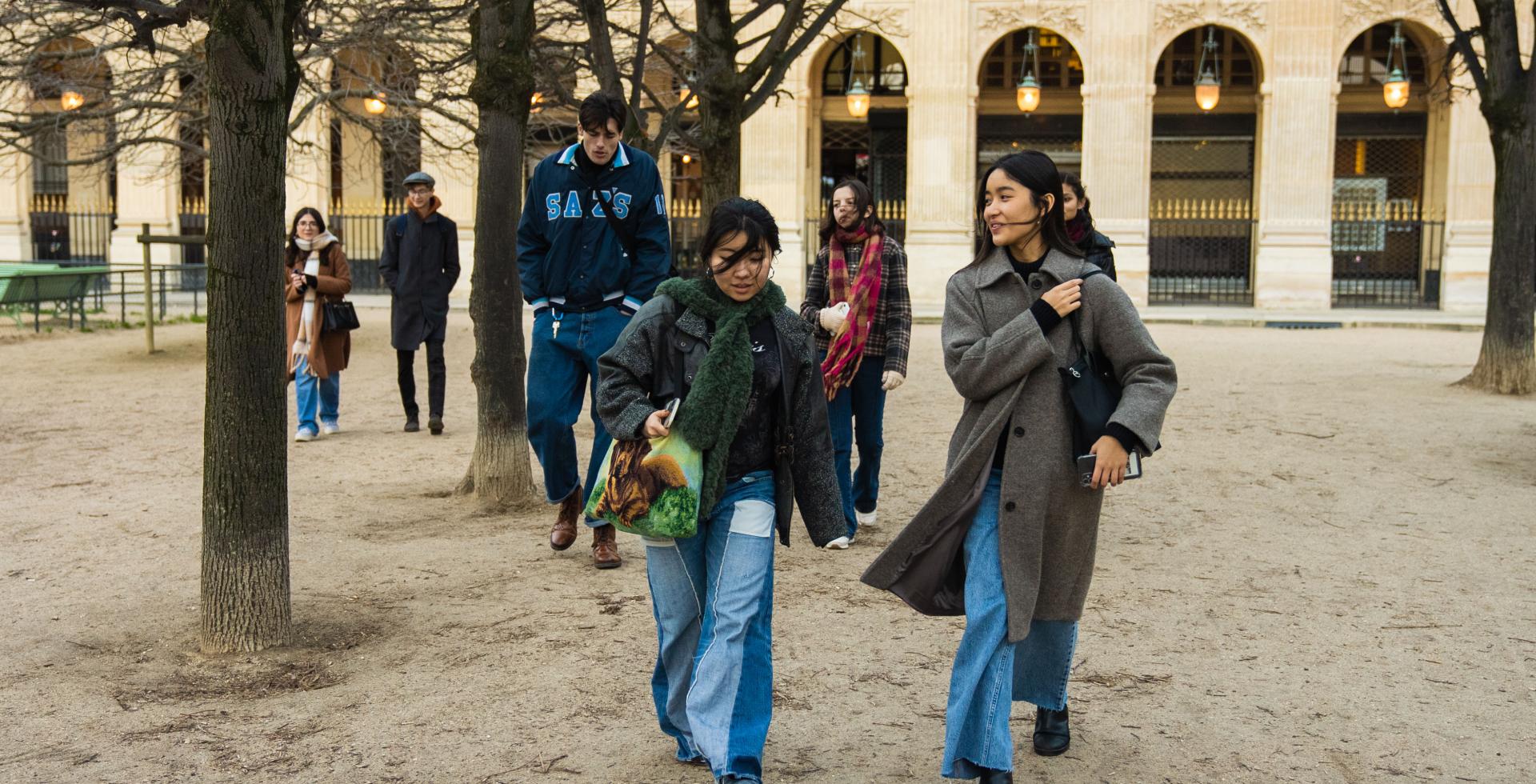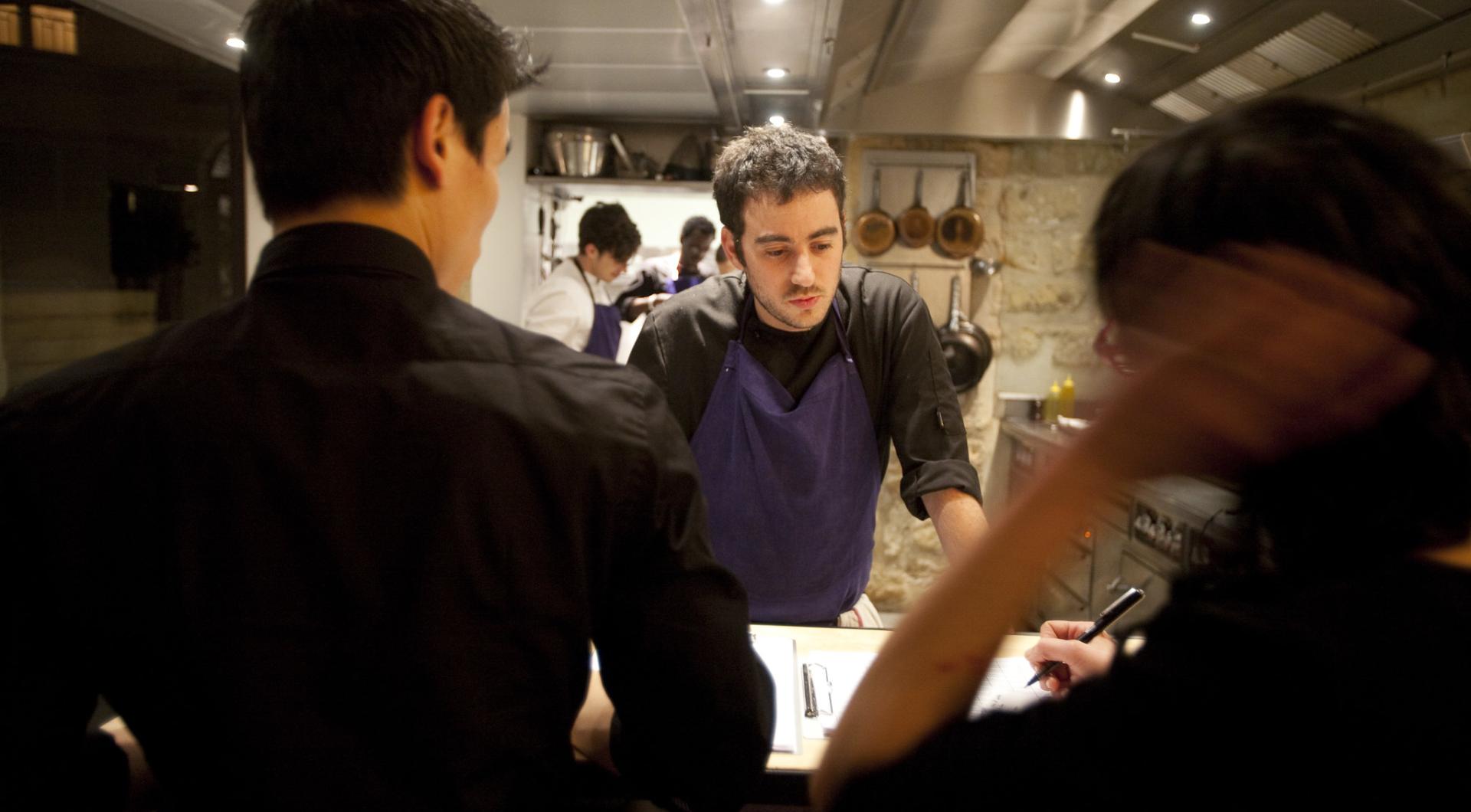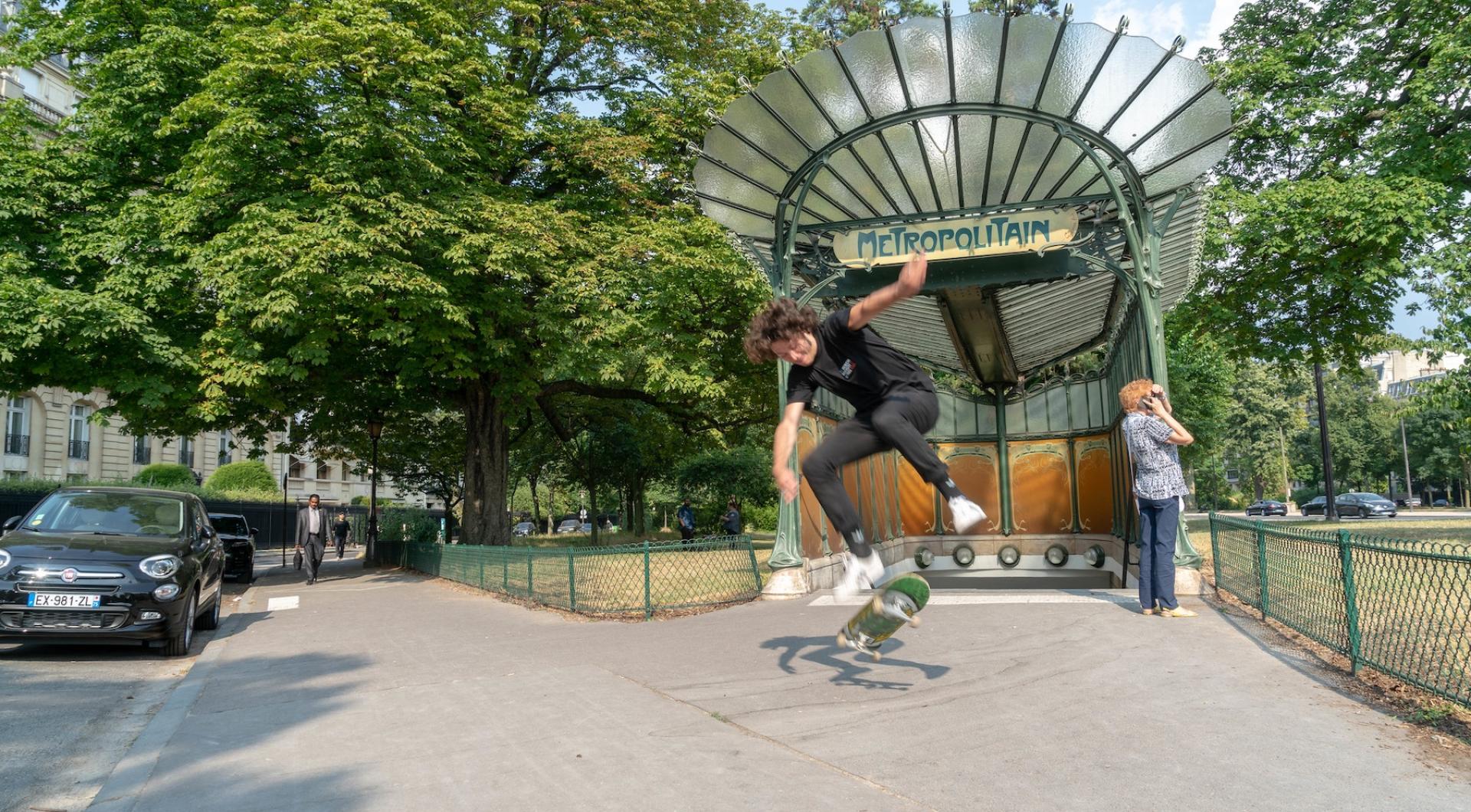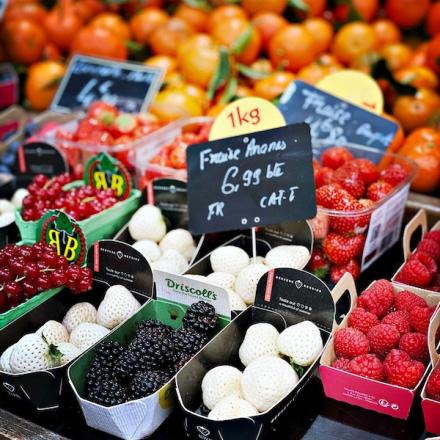Cultural Immersion

Language and Culture
Cultural immersion is more than a simple relocation—it's an opportunity to adapt, learn and, crucially, expand one's perspective. The transformative power of living immersed in any foreign language, culture, and political system is undeniable, but France’s unique make-up provides a particularly fertile soil for this kind of growth. At AUP, we recognize this potential and encourage our students to actively engage in observation, reflection and self-study of the diverse cultures and contexts they encounter during their studies in this cosmopolitan capital.

No matter your area of study, make the most of the varied perspectives and unique experiences on offer in the City of Light.
Arts, Crafts, & Intellectual Pursuits
Culture in Paris is a dynamic, interactive experience that extends far beyond the famous old stones and museums you see on postcards. At its roots, Parisian life is built around creativity and intellectual exploration. From literary salons to cultural non-profit associations, from high-end exhibition spaces to the workshops of traditional craftsmen, the city offers a vibrant tapestry of communities dedicated to the finer things in life.
At AUP, we emphasize that culture is not just consumed but also created. We encourage our students to actively engage in this cultural dialogue, fostering a reciprocal exchange that goes beyond the surface. Get involved, find your community, learn a new skill or art. It is by taking part in the process that newcomers will begin to find themselves woven into the fabric of Parisian city life (and speaking French!). While France is no stranger to online spaces, the youth of the city packs into cafés and co-working spaces to make their art and business dreams a reality, so don’t miss out on these real-world experiences and get out of your comfort zone.
The Sidewalk is Your Garden
In Paris, life is a communal experience, and this is only partly due to the actual population density (highest in Europe and ranked 7th in the world). Apartments are often small as those with families often move to the more affordable suburbs and, as a result, the city-streets themselves become your backyard. Parks, café terraces, libraries, and campuses are no longer mere physical spaces but extensions of your daily life that are not built around rampant consumption but rather the appreciation of simple things. AUP encourages graduate students to adopt this lifestyle in the public domain as an opportunity for cohabitation and mutual learning. Through active observation, reflection, and self-study, our students continuously evolve, confronting internal preconceptions and cultural conditionings to better prepare for the globalized world of tomorrow.
Each of Michelin starred chef Daniel Rose's '00 Parisian restaurants are steeped in the local atmosphere, history and culture of their neighborhoods.

Culture in Paris extends far beyond the famous old stones and museums you see on postcards.

The city is filled with historic parks, gardens and green spaces where you can relax like a local.

We encourage our students to actively engage with the diverse cultures and contexts they encounter in this cosmopolitan capital.

In Paris, the city streets themselves become your backyard.

Food culture in more than just traditionally French fare, reflecting the country's diverse history and population.


A Tapestry of Taste
Paris, a city synonymous with gastronomy and oenology, offers an unparalleled canvas for the connoisseur and the curious alike. Here, food and wine are not merely consumed; they are celebrated as integral components of cultural identity and expressions of living art in France. At The American University of Paris, we delve into the rich tapestry of French culinary traditions through our urban campus and in-city housing, through which students are exposed to bustling open-air markets brimming with fresh produce, cafés that are cornerstone to Parisian culture and small businesses that feature some of the world’s finest and most innovative cuisine. In this city, meals are more than sustenance; they are a form of communication, a way to connect across cultures and languages. AUP encourages students to immerse themselves in the communal aspect of dining, to engage in the lively discourse that accompanies a shared meal, and to appreciate the slow pleasure of a well-crafted dish.
Contestation and Public Administration
Social democracy in France is more than a mere background but a living reality, woven into the fabric of daily life. Strikes, political contestation, and sometimes difficult public administration represent the other side of the coin of free healthcare, public services, and union protection. AUP recognizes the interconnectedness of these elements and emphasizes that social activism and support structures are intricately linked. This dynamic interplay is often a hot topic in café conversation or around any dinner table, a rich dialogue that can teach all participants how better to live together. Our students graduate not only with academic knowledge but with a first-hand understanding of how these issues shape their lives in a very real way, re-evaluating the role that each of us plays when we pan out to see the big picture.